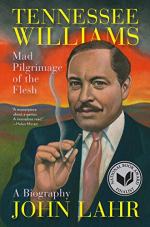|
This section contains 1,523 words (approx. 4 pages at 400 words per page) |

|
Summary
"The Rose Tattoo" opened in New York with somewhat mixed reviews. However, a ringing endorsement came from critic Brooks Atkinson of The New York Times who called it "original, imaginative and tender." Relieved, Williams withdrew to Key West and to Merlo and his family, who were vacationing there. But his disquiet about actress Maureen Stapleton continued to worry him. He wrote her several letters gently urging her to make a few "adjustments" in her presentation. Unbeknownst to the playwright, Stapleton was earning her own following because of her gutsy, down-to-earth portrayal of Serafina.
The success of "The Rose Tattoo" drew attention to Williams as a gay artist at a time in 1950s America when waves of political paranoia about communism crashed at the feet of anyone who dared to be even a bit nonconformist. The despotic anti-communist crusader Sen. Joseph McCarthy and his...
(read more from the Fugitive Mind Summary)
|
This section contains 1,523 words (approx. 4 pages at 400 words per page) |

|




